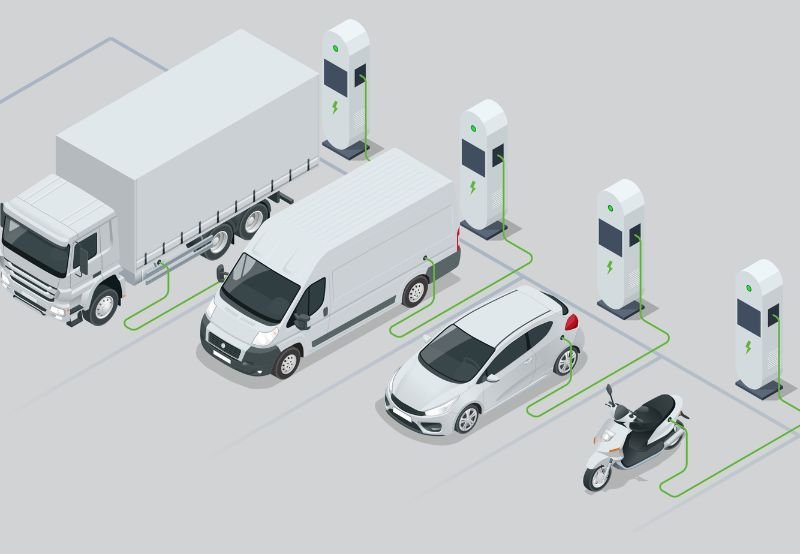India’s electric vehicle (EV) industry has demonstrated extraordinary endurance and growth despite obstacles. Over the next five to ten years, both domestic and foreign businesses have committed to making large investments totaling more than INR 1 lakh crore. The stakeholders’ faith in the potential of the Indian EV market is reflected in this pledge.
Additionally, according to Vahan, India presently has 3 million registered electric vehicles. By 2030, forecasts predict that 10 million EVs will be sold, creating 50 million jobs.
The striking shift in sales trends is proof of the EV surge. Sales of electric vehicles (EVs) increased 131% between January and July 2023, from 25,100 units to 58,076 units. Internal combustion engine (ICE) cars, on the other hand, only had a 5% increase, going from 2.1 million to 2.2 million units.
Over 700 EV startups are based in India, demonstrating the industry’s dynamism. Established ICE manufacturers have hastened their shift to the electric car market at the same time. Urbanization, environmental concerns, and government rules are driving the industry’s key moment and causing a spike in the use of electric two-wheelers and three-wheelers.
India is positioned to lead the electric two- and three-wheeler markets within five years, according to Sandiip Bhammer, the founder and co-managing partner of Green Frontier Capital, which has investments in EV startups like BluSmart Mobility, ElectricPe, Revfin, and Battery Smart Swap Stations. This is due to homegrown technologies and strong local supply chains.
India’s electric vehicle Road to the Future Is Growing Rapidly.
EVs cover a variety of market niches and present a range of prospects. Original equipment manufacturers (OEMs), electric vehicle financiers, deep tech enablers, charging station suppliers, battery manufacturers, assemblers, BMS providers, and numerous more businesses are among these segments.
Each of these developing areas offers new chances for entrepreneurs and gives early entrants a competitive edge. The rise of the EV market is inevitable, unlike that of other developing businesses like cryptocurrencies and online gambling.
According to NITI Aayog’s report, if the domestic industry hadn’t grown, the total need for 120 GWh of batteries between 2017 and 2020 would have cost $24 Bn in imported packs. However, creating a $6–$9 billion pack assembly sector in India would drastically cut costs, opening up a huge market for Indian entrepreneurs and businesses to build batteries and produce cells.
Recognizing the math, well-known businesses like Ola have also made large investments in the production of batteries. In Krishnagiri, Tamil Nadu, Ola plans to invest INR 7,614 Cr to develop battery cells and four-wheeler electric vehicles, and INR 4,106 Cr to build a 500K sq ft “Battery Innovation Centre” in Bengaluru.

Similar to this, Tata has agreed to invest approximately INR 13,000 Cr ($1.58 Bn) in the construction of a lithium-ion cell facility. Tata wants to build a 20 GWh battery factory, whereas Ola wants to build a 100 GWh battery plant.
With Hyundai promising to invest $2.4 Bn over the next 10 years, other big players have also made sizeable investments. The electric vehicle lineups of Maruti Suzuki and Toyota are receiving significant investments of $1.3 Billion and 630 Million, respectively.
In order to close these supply shortages, the government has recently announced a few production-linked incentive (PLI) programs. One of them is intended for the auto component industry and has a budget of INR 25.9K Cr. The other, with a budget of INR 18.1K Cr, is to support India’s whole advanced chemistry cell (ACC) battery industry.
The PLI Scheme for ACC battery storage had already nominated Reliance New Energy, Ola Electric, and Rajesh Exports. The initiative will significantly lower production costs overall. Industry experts predict that the PLI scheme plants will be operating by the end of 2024.
The main requirements of a developing electric vehicle ecosystem also include the creation of a charging infrastructure, the collection of public charging stations, real-time vacancy information, and component manufacturing.
Players on EVs are cooperating rather than competing.
The Indian electric vehicle sector has seen substantial alliances and initiatives take shape in support of the lofty 2030 goals, and, like fintechs, EV is another field where we have seen a rise in collaboration between startups and industry behemoths.
Hyundai Motor India’s MD and CEO, Unsoo Kim, had previously emphasized the critical role that strategic alliances play in accelerating the adoption of electric vehicles among consumers and advancing the goal of the country to become carbon neutral.
The essence of India’s developing EV environment may be found in this spirit of cooperation. The sector is seeing a rise in cooperation rather than fierce competition. For instance, Tata Power and Hyundai Motors have partnered to create infrastructure for fast charging. Volkswagen and Mahindra & Mahindra are thinking about collaborating on modular electric drive matrix (MEB) platforms.
Uber India and Tata Motors signed a contract earlier this year for the latter to provide 25,000 EV automobiles by the following year. In order to install 25,000 electric vehicles on the Uber platform in India over the next two years, Uber is working with EV fleet partners Lithium Urban Technologies, Everest Fleet Pvt Ltd, and Moove.
Uber and Zypp Electric have partnered to roll out 10,000 electric two-wheelers in Delhi by 2024. Uber has also disclosed a collaboration with SIDBI to access INR 1,000 Cr in funding.


